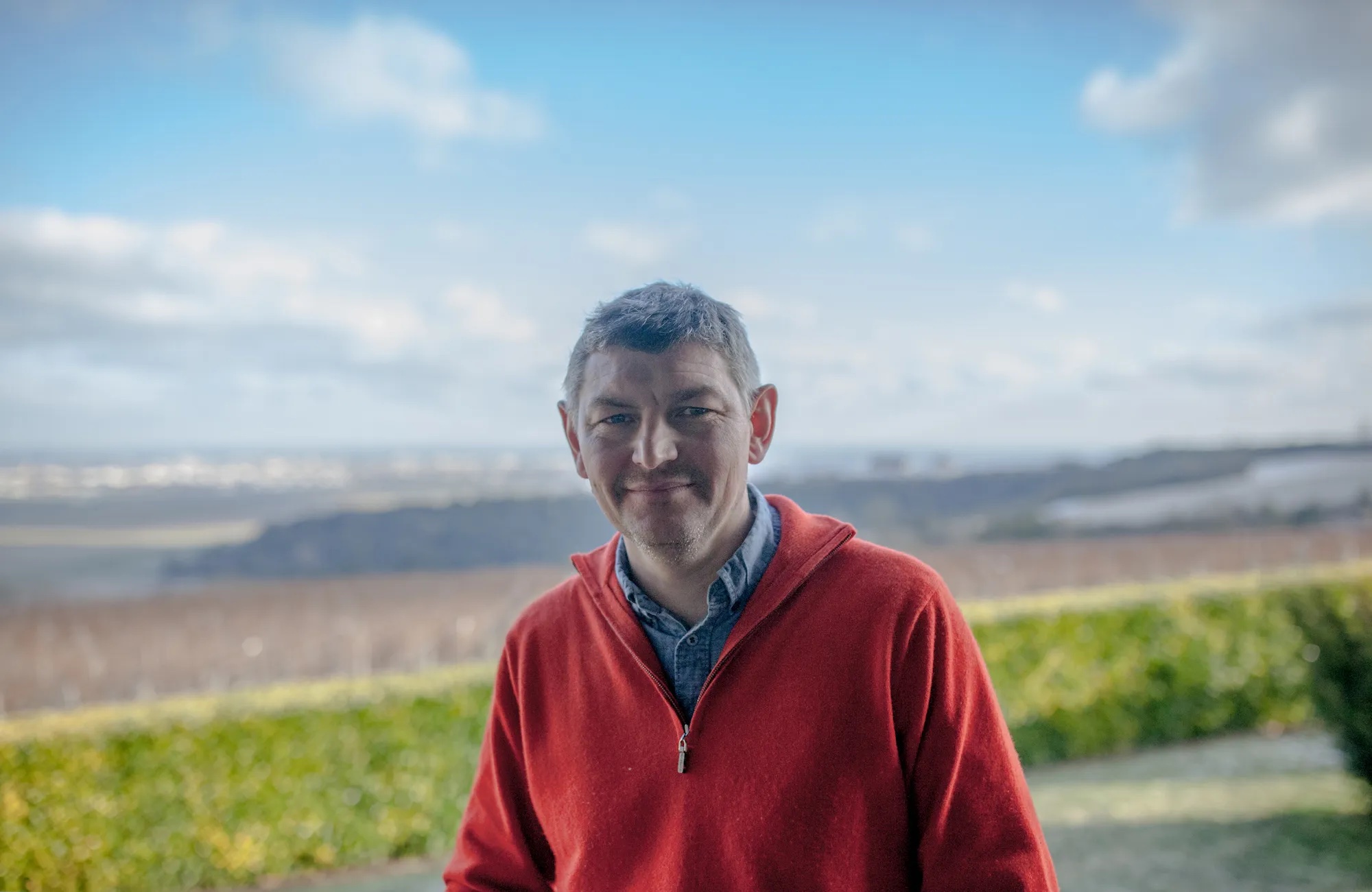Winemaker of this cult grower Champagne in Montgueux: “I don’t have any competitors, just hazards!”.
The 26th interview in Le Figaro Vin’s series takes us to the Aube where Emmanuel Lassaigne, #25, creates some of the purest champagnes in the region at the helm of his family estate. Here he reveals the unconventional approach that has made him one of the favourite Champagne winemakers at the finest tables in the world.
Situated in Montgueux near Troyes, the Jacques Lassaigne estate, comprising 4.7 hectares, was established in 1964. Often compared to the terroir of Montrachet in Burgundy, Montgueux lies at the northern edge of the Côte des Bar, enjoying cool climatic conditions on a limestone hillside which overlooks the Seine Valley. Emmanuel Lassaigne took over in 1999, converting to organic and biodynamic cultivation. While Pinot Noir is typically planted in this region, Emmanuel Lassaigne marches to a different tune, seeking to produce distinctive Blanc de Blancs champagnes by means of vinifying partly in barrels, disgorging entirely by hand without ice, and eschewing the addition of any sulphur or sugar. This rigorous approach produces perfect champagnes for high-end gastronomy, highly sought after by top sommeliers.
Le Figaro Vin: How does it feel to be crowned a winemaking champion?
Emmanuel Lassaigne: I played a lot of sport and I dreamt of being a champion: it’s a belated reward!
Have you been training for long?
Yes. When you are a winemaker you work on a solitary piece of land. If you think about it, it’s not much of a playing field. So I create ephemeral wines, always following the same approach, and I make between five and eight different cuvées every year, in sherry barrels, port barrels…so I have done a lot of training, and every vintage is different, with its own unique characteristics.
Who is your mentor?
We are fortunate in having Aux Crieurs de vin (iconic restaurant and natural wine bar in Troyes, ed.), which played a significant part in my initiation into the world of artisan natural wine. I should also mention my encounters with winemakers from the school of Lapierre (Marcel Lapierre, of Domaine Marcel Lapierre in Beaujolais, who was a pioneer in the field of organic cultivation, ed.), which have had a key role in my development.
Is wine a team sport?
We are a team in some respects, yes, but when it comes to winemaking I am on my own. I need to decide things for myself, not as part of a committee.
What is the key to making a good wine? The terroir or the winemaker?
The terroir. But we should put this in perspective, because not everyone shares the same taste. I think we make the wines that we like to drink ourselves and, in that sense, we are led by our personal preference. Here, we deal in small volumes and don’t have the weight of history on our shoulders. The chef de cave of a great house is a conductor who has to follow a musical score. Me, I’m a jazzman!
To what do you owe your success?
To some pivotal encounters. When I took over my parents sold our entire production directly from the estate. I wanted to outsource sales to specialist wine merchants and sommeliers. I had no connections with any restaurants back then, but I struck lucky with some Michelin-starred restaurants who promoted me. Le Meurice, Yannick Alléno, l’Astrance, Noma, and even El Celler de Can Roca, ordered my wines by the crate! I was inspired to make a wine for an aperitif, namely Les Vignes de Montgueux, a wine without added sugar which is perfect for starting a meal. After all, we don’t start with the dessert.
Is your family proud of you?
I belong to a peasant family, so we don’t discuss that sort of thing. At the same time the village derives a certain pride from what we do, since we raise the profile of the terroir through the names of our wines.
Your favourite colour?
Red.
Your favourite grape variety?
I love the heady dimension of Chardonnay and we work it like a red in order to develop a full-bodied character. I like it when you can recognise the fruit in the wine. The grape is only exciting when it’s ripe.
Your favourite wine?
I have four children and I couldn’t choose between them; the same goes for my wines. The most significant for me, however, is the first: Les Vignes de Montgueux.
Your favourite vintage?
I don’t have one, absolutely not. My favourite vintage is always the next one.
If your wine was a person, who would it be?
An amalgam of Chet Baker, Miles Davis, and John Coltrane.
What are the best circumstances in which to taste your wine?
You can enjoy it on your own because we have greatly developed its multisensorial side. I have gone beyond food and wine pairing because I’m a hopeless cook. I am deeply involved with music and lucky enough to have a Pleyel piano to play on here.
Who is your strongest competition?
I don’t have any competitors, just hazards!
What is your greatest trophy?
The best thing about my job is the encounters I have with chefs, sommeliers, and wine merchants.
Who would be your ideal successor on the podium?
There are two ways of looking at this. From an internal perspective this job is not exactly a lot of fun, it’s not the stuff of dreams. I would sooner my children look outwards, even though I hope that, at some point, one of them will take over the estate.
